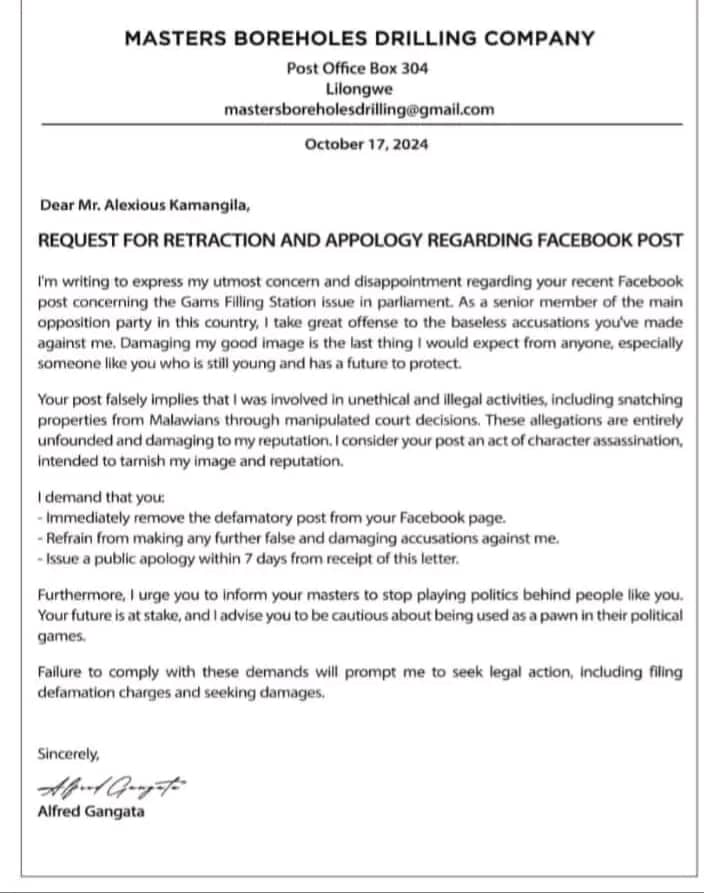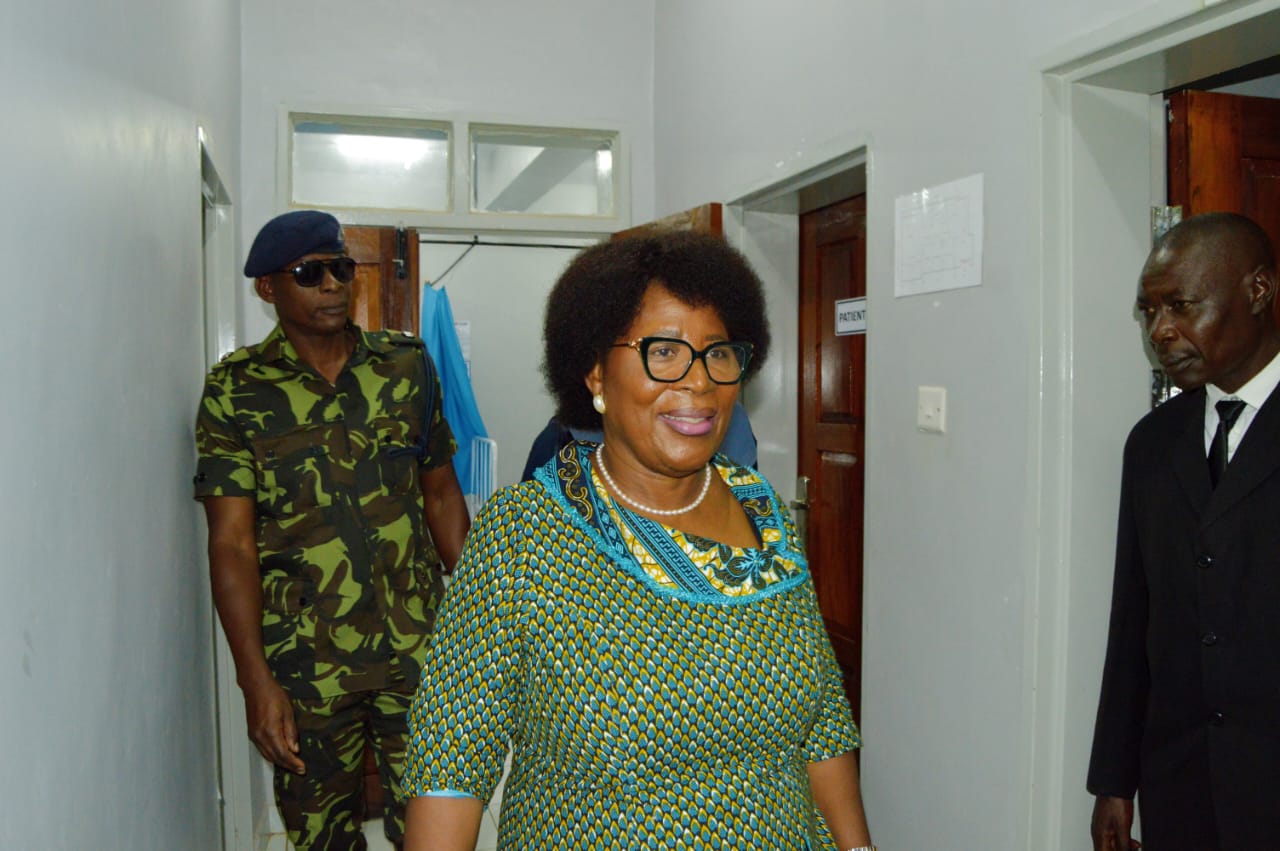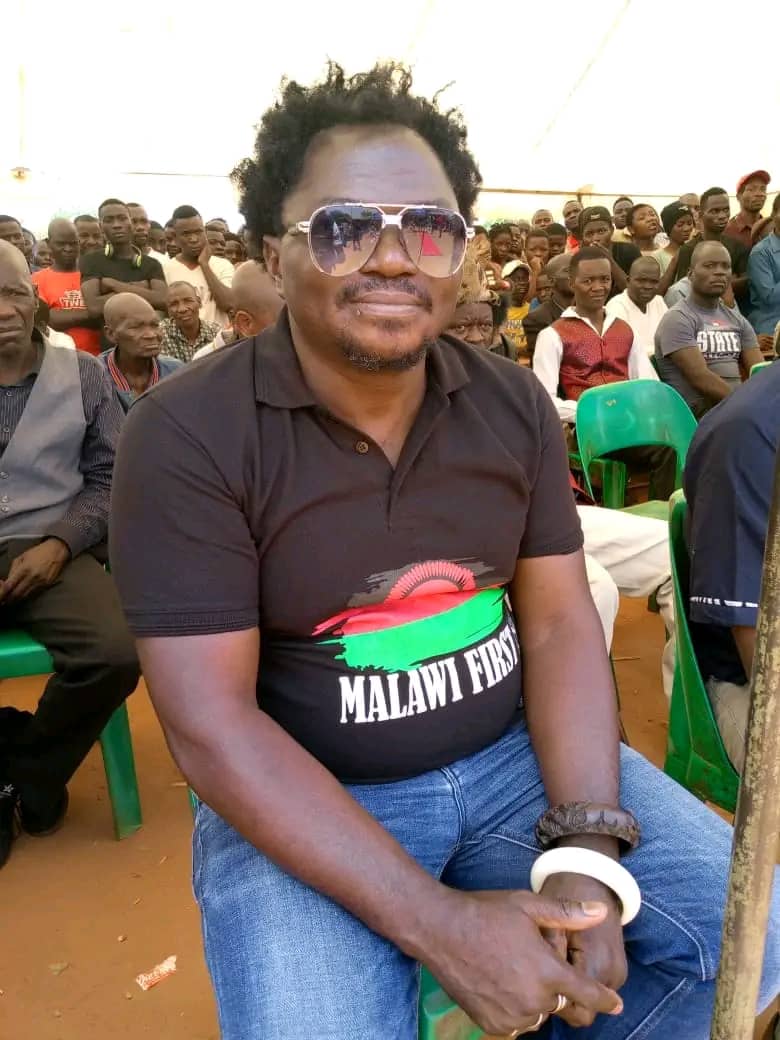By Burnett Munthali
In a recent social media outburst, prominent lawyer Alexius Kamangila expressed his frustration regarding a letter purportedly written by Mr. Gangata, leading to a wave of discussions online about the tone and implications of such public statements. Kamangila’s post, shared on his Facebook page, reads:
“If this letter is legit, Mr. Gangata, GO BACK TO SCHOOL. Don’t even dare waste the Court’s time. I don’t know how I can talk, but do you see the tonnage, the threats ‘you are young,’ etc.? How are such savages getting prominence in our society? I didn’t know Gangata until now, and I am glad I didn’t because eeeeh NGOZI. Atha kukuonetsa ngati ndiwe munthu okonda ma game hahahahaha. You would think he is joking. I mean, what is this?”
Analyzing the message
Kamangila’s post seems to reflect deep dissatisfaction not only with the contents of the letter but also with the broader implications of its author gaining attention in society. His call for Gangata to “go back to school” suggests that Kamangila questions Gangata’s qualifications or suitability to engage in legal matters, indicating a belief that formal education is necessary for responsible discourse in legal contexts.
The use of phrases like “you are young” and “savages” implies a critique of the perceived lack of maturity or decorum in Gangata’s approach. By characterizing these individuals as “savages,” Kamangila draws attention to his belief that certain individuals should not hold prominent positions or influence within society, especially if their behavior is deemed irresponsible or juvenile.
Public reaction and implications
Kamangila’s post has sparked a significant response from both legal professionals and the general public, highlighting the tensions that exist within Malawi’s legal community and broader society. Many commentators have pointed out that such public statements can be detrimental to the integrity of legal discourse, especially when they border on personal attacks rather than constructive criticism.
Moreover, this incident raises questions about the role of social media in shaping public opinion and discourse. Kamangila’s post is indicative of a growing trend where professionals share personal opinions online, often leading to backlash and controversy. The immediacy of social media can amplify voices and opinions, but it can also blur the lines between professional conduct and personal expression.
The broader context
This controversy occurs within a larger framework of legal and social issues in Malawi, where public trust in the legal system is paramount. As society grapples with issues of accountability, professionalism, and ethical conduct, public figures must navigate the complexities of engaging with controversial topics without compromising their integrity or the integrity of the institutions they represent.
In this case, Kamangila’s comments may resonate with those who share his frustrations about the state of legal practice in Malawi. However, they also risk alienating others who advocate for a more inclusive and respectful discourse, regardless of age or experience.
Conclusion
As discussions continue around Kamangila’s comments, it remains crucial for public figures, especially in the legal field, to foster a culture of constructive dialogue. The line between criticism and personal attack is often thin, and navigating this space requires careful consideration of the impact of one’s words. Ultimately, the goal should be to elevate the discourse surrounding legal matters, encouraging a more professional and respectful engagement among all members of society.





